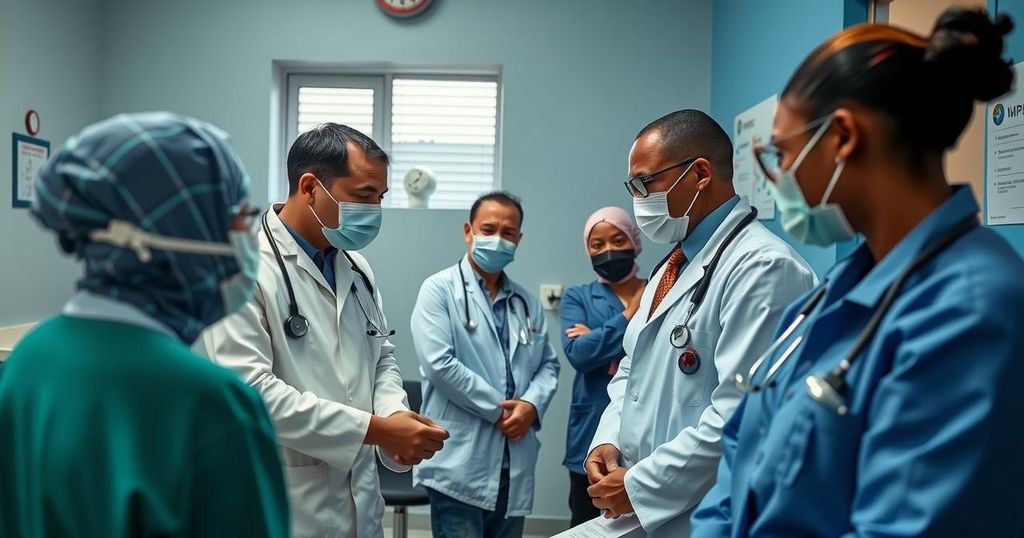The Democratic Republic of Congo reports a decrease in mpox cases following the rollout of vaccinations. WHO notes that while cases appear to be stabilizing, further monitoring is essential as new infections continue to affect vulnerable populations, particularly children. Despite the recent improvements witnessed in local clinics, there remains a need for continued vigilance and support in combating the outbreak.
Recent reports from the Democratic Republic of Congo (DR Congo) indicate a significant decline in new mpox cases, coinciding with the commencement of vaccination efforts last month. Medical professionals at local clinics have observed a transformation in patient influx, as previously dominated by overcrowded facilities, present conditions show reduced waiting times and availability of beds. The World Health Organization (WHO) has noted that cases may be ‘plateauing’ but underscored the necessity for caution given the unpredictable nature of the outbreak.
Despite improvements, the WHO highlighted that mpox remains a serious concern, particularly for children who have largely been excluded from vaccination campaigns. Current estimates suggest that around 30% of those infected are minors, prompting discussions regarding the development of child-appropriate vaccine strategies.
Furthermore, while vaccination initiatives are being implemented in DR Congo—having received a donation of 265,000 vaccine doses—health officials admit that the situation requires ongoing surveillance and intervention to fully address the crisis. Recent findings from the Africa Centres for Disease Control and Prevention (Africa CDC) indicate persistent escalation of mpox transmission in various regions, providing evidence that even amidst apparent reductions in infections, vigilance is paramount.
Healthcare providers report that community awareness has improved, with patients seeking treatment earlier, which is indicative of changing attitudes toward traditional healing practices. Despite the hopeful signs in DR Congo, with mortality rates remaining disproportionately high, stakeholders remain cautious in their assessment, as they prepare for upcoming evaluations of the outbreak’s global status.
Mpox, formerly known as monkeypox, is a highly contagious viral disease that has seen a surge in cases, particularly in the Democratic Republic of Congo (DR Congo). The disease’s transmission has primarily affected marginalized communities in the eastern provinces. This year alone, it is suspected to have caused the deaths of approximately 900 individuals in DR Congo. The concern has drawn the attention of global health organizations, prompting initiatives for vaccination and enhanced medical resources to combat the outbreak. The World Health Organization (WHO) has been closely monitoring the evolving situation as vaccination programs expand across the region. However, health officials highlight the continuing spread of mpox across various African nations, necessitating robust public health interventions to contain it effectively. While vaccination efforts have begun, challenges remain in addressing the disproportionate impact on children, who represent a significant percentage of new infections.
In conclusion, the mpox outbreak in the Democratic Republic of Congo appears to be stabilizing due to recent vaccination initiatives, yet health officials urge caution as new cases continue to arise, particularly among unvaccinated children. The efforts to control the outbreak through improved healthcare responses and vaccinations showcase a proactive approach in dealing with public health crises. As further assessments and decisions regarding public health alerts are anticipated, ongoing vigilance and support are critical to ensure sustained improvements in the situation.
Original Source: www.bbc.com






